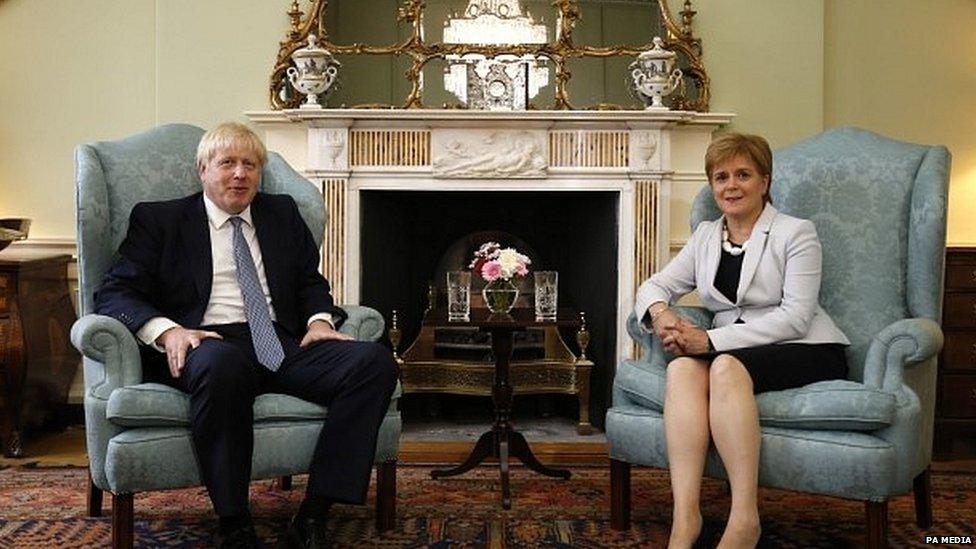Scotland: Forget Indyref2, what about Indyref3?
- Published

Forget Indyref2, what about Indyref3?
What?
Only a couple of days ago, Scottish Secretary Alister Jack said that there was no way the UK government would permit another referendum that would give Scottish voters the chance to leave the UK, unless they were prepared to wait a very long time, and by a long time perhaps he meant as long as 40 years.
That's because, the passionately fought referendum in 2014 was billed as a "once in a generation" choice.
As things stand, the UK government has to give consent for another vote to take place, and you can read about the legal position here.
No one seems, however, to have told Sir John Major that's the official position of the Conservative and (remember) Unionist Party. Or perhaps they did, and he merrily ignored them anyway.
After all, the former prime minister has on many occasions made it abundantly clear that he believes that Brexit is a mistake of epic proportions, and that he has little time for Boris Johnson's government or style of doing business.
Where they do however agree is that Scotland should stay in the UK, and the union is well worth protecting.
That's why Sir John's suggestion of holding not one, but two public votes, on Scotland leaving the UK is striking.
What Sir John's suggesting is a referendum on whether to ask the hypothetical question. Then a period of working out what Scotland outside the UK would look like before another vote to decide if it's what Scottish voters want in practice - try before you buy, if you like.
In the last few weeks, well before Sir John's remarks, there has been whispering in Westminster about the possibility of granting the SNP another referendum on independence if they secure a majority at the critical elections for the Scottish Parliament in May.
It was described to me as a "call their bluff" referendum, to push the SNP into another poll quickly, possibly around this time next year.
Now first off, that is not because anyone in the government actually wants to have another referendum, or split the UK apart, but there is what one source described to me as a "very high risk" temptation to force a vote on the SNP before they actually want to move - the power of surprise, if you like.
And secondly, importantly, while there is anxiety among union circles about conversations where this option has been gamed out, it is rejected in very strong terms by figures who would be involved in making such a high-stakes decisions.
"No one credible" is making an argument for such a vote, one senior official said. Another insider describes it as "insane".
For the UK's unionist parties, the primary task is to try to hold off an SNP majority in May so the question doesn't arise for real.
But given that polls suggest the SNP is likely to be dominant, the reality is what is politely described as a "lot of debate" inside government about what to to do in that circumstance.
In political parlance, that means there are a lot of pretty tricky conversations going on with no obvious conclusions, while some describe it less politely than that.
And some involved in those contacts describe a rather patchy approach in government - "the Cabinet Office (where Michael Gove has responsibility for this) wants to lean in".
But there's a sense that Number 10 would simply rather it all went away - keen not to allow another agonising constitutional question to dominate the early years of their term in charge, far less to allow for the possibility that having taken the UK out of the EU, Boris Johnson then opened the door to the end of the union.
While he is no friend of Number 10, nor frankly someone with sway over this government, Sir John's intervention might again stir up the conversations about whether saying no, no, no can really hold.
